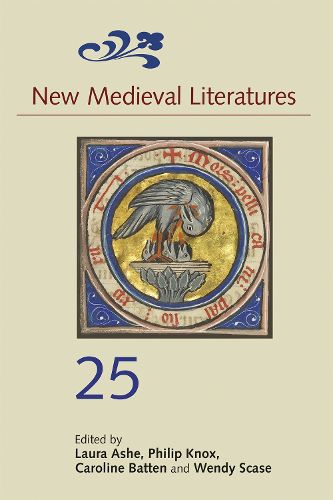Readings Newsletter
Become a Readings Member to make your shopping experience even easier.
Sign in or sign up for free!
You’re not far away from qualifying for FREE standard shipping within Australia
You’ve qualified for FREE standard shipping within Australia
The cart is loading…






This volume continues the series' engagement with intellectual and cultural pluralism in the Middle Ages, showing the best new work in the field.
Essays in this volume deal with texts from the ninth to the fifteenth century and include some unexpected comparisons with British Romanticism. Great attention is paid to manuscripts in their contexts and situations of production: thirteenth-century mortuary rolls are examined as sites of fluidly variegated scribal training and practice, revealing a "scriptscape" of social networks spread across the country. Elsewhere, close analysis of manuscripts known to have belonged to Henry Despenser, bishop of Norwich (1370-1406) makes the case for an effective scribal atelier in the city, presided over by the "Despenser Master". Three essays are linked by a consideration of didactic writing: the Old English translation of Gregory the Great's Pastoral Care is analysed both textually and paleographically for what it reveals about grammatical study in England's early Middle Ages, and the moral freighting of that learning; a comparative analysis of multilingual retellings of sheep fables making an important contribution to animal studies; and recent, violent historical events are shown to have been reshaped into a parable for the instruction of wives in the Mesnagier de Paris. Finally, Gower's expansive geographical and genealogical imaginary in the Confessio Amantis reveals the impossibility of controlling the affordances of his multivalent "East"; while the Alliterative Morte Arthur is newly examined for its representation of mountains and mountaineering as sites of active moral allegory and spiritual importance, as well as real-world experiences of beauty and danger.
$9.00 standard shipping within Australia
FREE standard shipping within Australia for orders over $100.00
Express & International shipping calculated at checkout
This volume continues the series' engagement with intellectual and cultural pluralism in the Middle Ages, showing the best new work in the field.
Essays in this volume deal with texts from the ninth to the fifteenth century and include some unexpected comparisons with British Romanticism. Great attention is paid to manuscripts in their contexts and situations of production: thirteenth-century mortuary rolls are examined as sites of fluidly variegated scribal training and practice, revealing a "scriptscape" of social networks spread across the country. Elsewhere, close analysis of manuscripts known to have belonged to Henry Despenser, bishop of Norwich (1370-1406) makes the case for an effective scribal atelier in the city, presided over by the "Despenser Master". Three essays are linked by a consideration of didactic writing: the Old English translation of Gregory the Great's Pastoral Care is analysed both textually and paleographically for what it reveals about grammatical study in England's early Middle Ages, and the moral freighting of that learning; a comparative analysis of multilingual retellings of sheep fables making an important contribution to animal studies; and recent, violent historical events are shown to have been reshaped into a parable for the instruction of wives in the Mesnagier de Paris. Finally, Gower's expansive geographical and genealogical imaginary in the Confessio Amantis reveals the impossibility of controlling the affordances of his multivalent "East"; while the Alliterative Morte Arthur is newly examined for its representation of mountains and mountaineering as sites of active moral allegory and spiritual importance, as well as real-world experiences of beauty and danger.